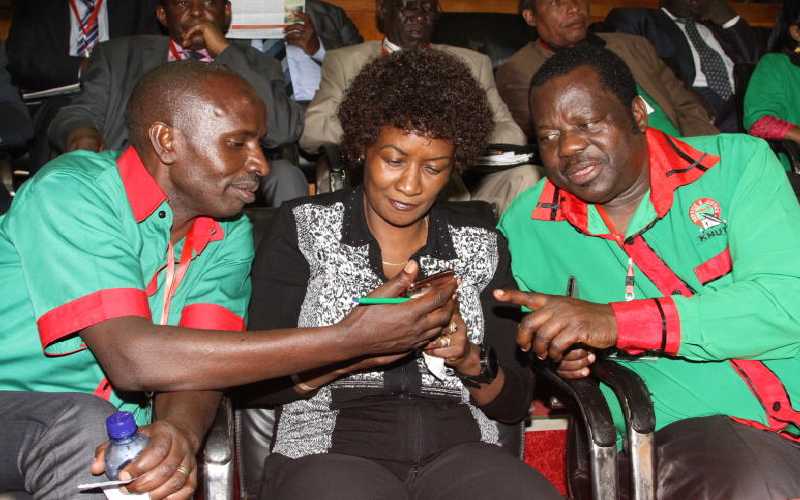×
The Standard e-Paper
Stay Informed, Even Offline

Kenya National Union of Teachers (Knut) Secretary-General Wilson Sossion and union chairman Mudzo Nzili with Teachers Service Commission CEO Nancy Macharia at a past function. [File, Standard]
Dispute prevention and resolution attract more attention today because they are critical for sound and productive employment relations worldwide.







